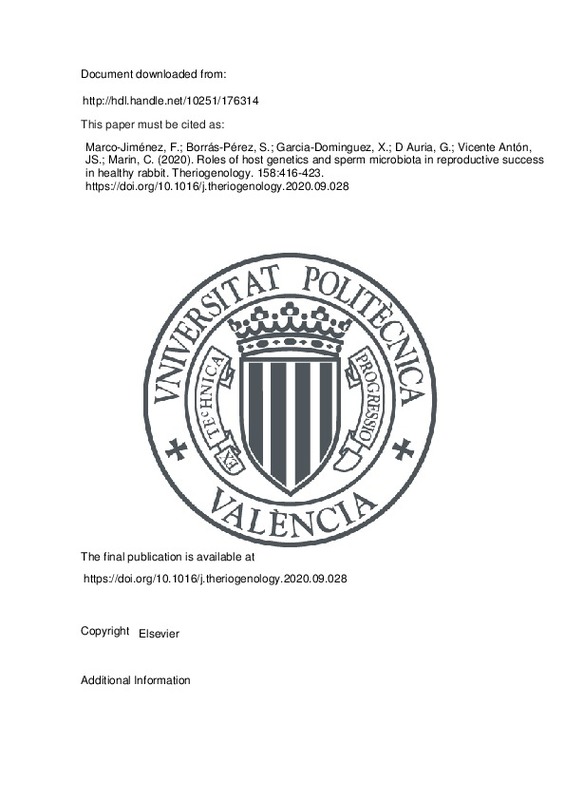JavaScript is disabled for your browser. Some features of this site may not work without it.
Buscar en RiuNet
Listar
Mi cuenta
Estadísticas
Ayuda RiuNet
Admin. UPV
Roles of host genetics and sperm microbiota in reproductive success in healthy rabbit
Mostrar el registro completo del ítem
Marco-Jiménez, F.; Borrás-Pérez, S.; Garcia-Dominguez, X.; D Auria, G.; Vicente Antón, JS.; Marin, C. (2020). Roles of host genetics and sperm microbiota in reproductive success in healthy rabbit. Theriogenology. 158:416-423. https://doi.org/10.1016/j.theriogenology.2020.09.028
Por favor, use este identificador para citar o enlazar este ítem: http://hdl.handle.net/10251/176314
Ficheros en el ítem
Metadatos del ítem
| Título: | Roles of host genetics and sperm microbiota in reproductive success in healthy rabbit | |
| Autor: | Borrás-Pérez, Sara D Auria, Giuseppe Marin, Clara | |
| Entidad UPV: |
|
|
| Fecha difusión: |
|
|
| Resumen: |
[EN] Although the effects of sperm microbiota and sperm quality have been described previously, recent studies provide evidence that female genital modifications triggered by seminal components could be of significant ...[+]
|
|
| Palabras clave: |
|
|
| Derechos de uso: | Reconocimiento - No comercial - Sin obra derivada (by-nc-nd) | |
| Fuente: |
|
|
| DOI: |
|
|
| Editorial: |
|
|
| Versión del editor: | https://doi.org/10.1016/j.theriogenology.2020.09.028 | |
| Código del Proyecto: |
|
|
| Agradecimientos: |
Funding from the Ministry of Economy, Industry and Competitiveness (Research project: AGL2017-85162-C2-1-R) is acknowledged. X.G.D. was supported by a research grant from the Ministry of Economy, Industry and Competitiveness ...[+]
|
|
| Tipo: |
|







![[Cerrado]](/themes/UPV/images/candado.png)


